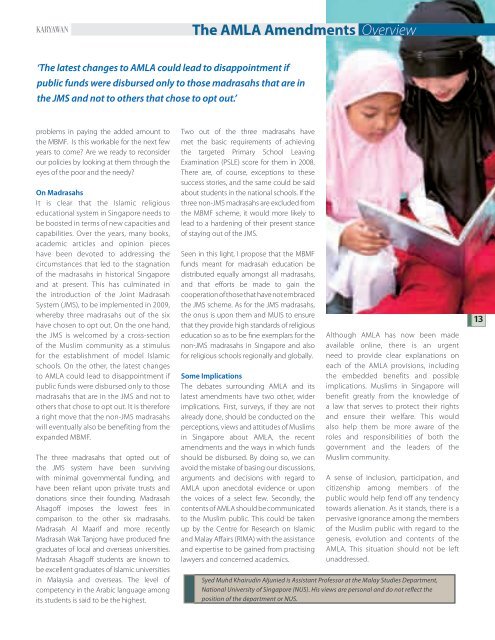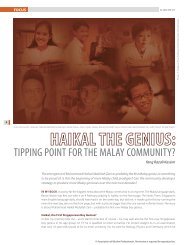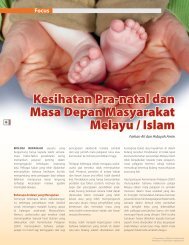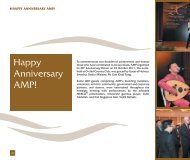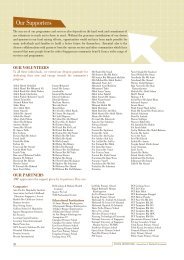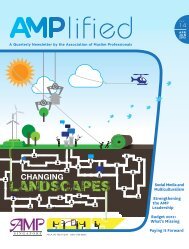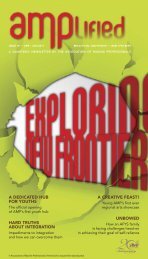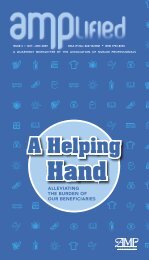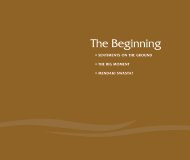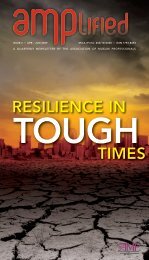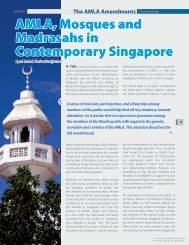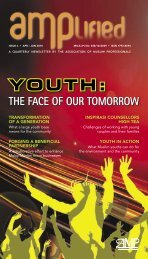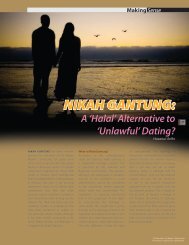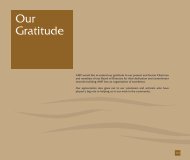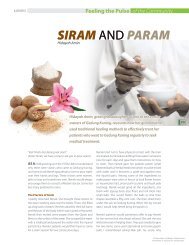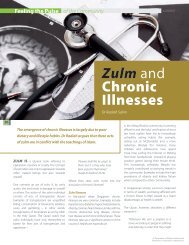The AMLA Amendments - Association of Muslim Professionals
The AMLA Amendments - Association of Muslim Professionals
The AMLA Amendments - Association of Muslim Professionals
You also want an ePaper? Increase the reach of your titles
YUMPU automatically turns print PDFs into web optimized ePapers that Google loves.
KARYAWAN<br />
<strong>The</strong> <strong>AMLA</strong> <strong>Amendments</strong> Overview<br />
‘<strong>The</strong> latest changes to <strong>AMLA</strong> could lead to disappointment if<br />
public funds were disbursed only to those madrasahs that are in<br />
the JMS and not to others that chose to opt out.’<br />
problems in paying the added amount to<br />
the MBMF. Is this workable for the next few<br />
years to come Are we ready to reconsider<br />
our policies by looking at them through the<br />
eyes <strong>of</strong> the poor and the needy<br />
On Madrasahs<br />
It is clear that the Islamic religious<br />
educational system in Singapore needs to<br />
be boosted in terms <strong>of</strong> new capacities and<br />
capabilities. Over the years, many books,<br />
academic articles and opinion pieces<br />
have been devoted to addressing the<br />
circumstances that led to the stagnation<br />
<strong>of</strong> the madrasahs in historical Singapore<br />
and at present. This has culminated in<br />
the introduction <strong>of</strong> the Joint Madrasah<br />
System (JMS), to be implemented in 2009,<br />
whereby three madrasahs out <strong>of</strong> the six<br />
have chosen to opt out. On the one hand,<br />
the JMS is welcomed by a cross-section<br />
<strong>of</strong> the <strong>Muslim</strong> community as a stimulus<br />
for the establishment <strong>of</strong> model Islamic<br />
schools. On the other, the latest changes<br />
to <strong>AMLA</strong> could lead to disappointment if<br />
public funds were disbursed only to those<br />
madrasahs that are in the JMS and not to<br />
others that chose to opt out. It is therefore<br />
a right move that the non-JMS madrasahs<br />
will eventually also be benefiting from the<br />
expanded MBMF.<br />
<strong>The</strong> three madrasahs that opted out <strong>of</strong><br />
the JMS system have been surviving<br />
with minimal governmental funding, and<br />
have been reliant upon private trusts and<br />
donations since their founding. Madrasah<br />
Alsag<strong>of</strong>f imposes the lowest fees in<br />
comparison to the other six madrasahs.<br />
Madrasah Al Maarif and more recently<br />
Madrasah Wak Tanjong have produced fine<br />
graduates <strong>of</strong> local and overseas universities.<br />
Madrasah Alsag<strong>of</strong>f students are known to<br />
be excellent graduates <strong>of</strong> Islamic universities<br />
in Malaysia and overseas. <strong>The</strong> level <strong>of</strong><br />
competency in the Arabic language among<br />
its students is said to be the highest.<br />
Two out <strong>of</strong> the three madrasahs have<br />
met the basic requirements <strong>of</strong> achieving<br />
the targeted Primary School Leaving<br />
Examination (PSLE) score for them in 2008.<br />
<strong>The</strong>re are, <strong>of</strong> course, exceptions to these<br />
success stories, and the same could be said<br />
about students in the national schools. If the<br />
three non-JMS madrasahs are excluded from<br />
the MBMF scheme, it would more likely to<br />
lead to a hardening <strong>of</strong> their present stance<br />
<strong>of</strong> staying out <strong>of</strong> the JMS.<br />
Seen in this light, I propose that the MBMF<br />
funds meant for madrasah education be<br />
distributed equally amongst all madrasahs,<br />
and that efforts be made to gain the<br />
cooperation <strong>of</strong> those that have not embraced<br />
the JMS scheme. As for the JMS madrasahs,<br />
the onus is upon them and MUIS to ensure<br />
that they provide high standards <strong>of</strong> religious<br />
education so as to be fine exemplars for the<br />
non-JMS madrasahs in Singapore and also<br />
for religious schools regionally and globally.<br />
Some Implications<br />
<strong>The</strong> debates surrounding <strong>AMLA</strong> and its<br />
latest amendments have two other, wider<br />
implications. First, surveys, if they are not<br />
already done, should be conducted on the<br />
perceptions, views and attitudes <strong>of</strong> <strong>Muslim</strong>s<br />
in Singapore about <strong>AMLA</strong>, the recent<br />
amendments and the ways in which funds<br />
should be disbursed. By doing so, we can<br />
avoid the mistake <strong>of</strong> basing our discussions,<br />
arguments and decisions with regard to<br />
<strong>AMLA</strong> upon anecdotal evidence or upon<br />
the voices <strong>of</strong> a select few. Secondly, the<br />
contents <strong>of</strong> <strong>AMLA</strong> should be communicated<br />
to the <strong>Muslim</strong> public. This could be taken<br />
up by the Centre for Research on Islamic<br />
and Malay Affairs (RIMA) with the assistance<br />
and expertise to be gained from practising<br />
lawyers and concerned academics.<br />
Although <strong>AMLA</strong> has now been made<br />
available online, there is an urgent<br />
need to provide clear explanations on<br />
each <strong>of</strong> the <strong>AMLA</strong> provisions, including<br />
the embedded benefits and possible<br />
implications. <strong>Muslim</strong>s in Singapore will<br />
benefit greatly from the knowledge <strong>of</strong><br />
a law that serves to protect their rights<br />
and ensure their welfare. This would<br />
also help them be more aware <strong>of</strong> the<br />
roles and responsibilities <strong>of</strong> both the<br />
government and the leaders <strong>of</strong> the<br />
<strong>Muslim</strong> community.<br />
A sense <strong>of</strong> inclusion, participation, and<br />
citizenship among members <strong>of</strong> the<br />
public would help fend <strong>of</strong>f any tendency<br />
towards alienation. As it stands, there is a<br />
pervasive ignorance among the members<br />
<strong>of</strong> the <strong>Muslim</strong> public with regard to the<br />
genesis, evolution and contents <strong>of</strong> the<br />
<strong>AMLA</strong>. This situation should not be left<br />
unaddressed.<br />
Syed Muhd Khairudin Aljunied is Assistant Pr<strong>of</strong>essor at the Malay Studies Department,<br />
National University <strong>of</strong> Singapore (NUS). His views are personal and do not reflect the<br />
position <strong>of</strong> the department or NUS.<br />
13


